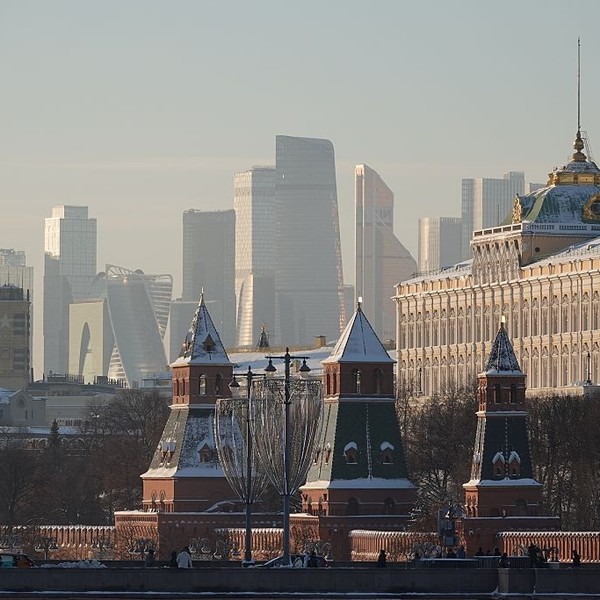The Cipher Brief's 'Academic Incubator' column features analysis and observations by current and recent students associated with national security-focused academic programs.
Earlier this month, the commander of the Libyan National Army (LNA), Khalifa Haftar, ordered his troops to march on the capitol Tripoli, which is held by the UN-backed Government of National Accord. As a result, there has been increased fighting in Libya and the LNA has closed in on Tripoli where its forces are conducting air strikes. While much of the West, and even previous backers of Haftar, have condemned the move on Tripoli stating that it will cause further unrest in an already unstable environment, Russia has thrown itself into the middle of the crisis to prevent any Western-led response. While claiming that it is not behind the advance by Haftar, multiple reports point to Saudi Arabia as the backer, Russia has blocked an initial UN Security Council statement calling for the LNA to cease its march on Tripoli.
However the situation unfolds, Russia will become increasingly enmeshed in Libya. This is not a continuation of its policy in Syria, but rather Russia’s response to the Western-led overthrow of Muammar Gaddafi in 2011. It provides Russia with an opportunity to come full circle and avenge its perceived betrayal at the hands of the West in 2011.
The tumultuous situation in Libya in early 2011 began as part of the Arab Spring when protests turned into violent rebellion against the authoritarian Gaddafi regime. In response, Gaddafi cracked down on the various rebel groups that made up the opposition and a civil war broke out. Gaddafi’s marked advantage in air power meant the rebels were facing a losing battle. The indiscriminate use of military force against civilians combined with Gaddafi threatening to “cleanse Libya house by house” as his military approached Benghazi spurred on a NATO-led no fly zone authorized in UN Resolution 1973. This quickly gave way to military strikes against Libyan forces in Operation Unified Protector and finally regime change as Gaddafi was killed on October 20, 2011. American and French forces, both in the sky and on land, played a crucial role in destroying Gaddafi’s fleeing caravan – rebel militias took care of the rest.
That the NATO intervention led to regime change was the primary gripe of the Kremlin as it argued that “Western countries were given an inch and took several miles.” Yet, the Kremlin did not show its outright disapproval of the Western intervention initially in March 2011 as it only abstained from the vote on UN Resolution 1973. Russia had even voted for the less aggressive UN Resolution 1970, which established non-military sanctions against Libya. This strayed from Russia’s traditional stance of non-intervention and protecting state sovereignty, except when the state is part of the former Soviet Union.
When operations in Libya expanded, and regime change seemed likely, the Kremlin was outraged. This was partially due to Russian feelings of betrayal and embarrassment as the then-Russian ambassador to the UN Vitaly Churkin claimed that Russia had assurances that the intervention would not lead to regime change. Russia became increasingly vocal in its disavowal of the conflict as Foreign Minister Sergey Lavrov noted in a speech that the operation went “far beyond the authorization of the no-fly zone.” Vladimir Putin likened the intervention to a crusade.
Russia attempted last ditch efforts to prevent regime change by trying to bring in the African Union to mediate. In this, Russia failed. As Gaddafi was killed and Libya turned into a failed state, causing chaos in neighboring countries such as Mali, Russia learnt from this failure as its policy in the Middle East shifted. It would not be “duped” again. This was exemplified in its response to the Arab Spring in Syria where it subsequently vetoed, as opposed to abstaining, multiple resolutions meant to condemn Assad; these resolutions were even weaker than UN Resolution 1973, yet Russia refused to be a bystander again. Since then, Russia has led a successful, in Russia’s eyes, military intervention in Syria as its ally remains in power and it has established bases in the region.
Now, with the current situation in Libya, Russia will work to thwart any Western attempts at “intervention,” even if it is only a UN resolution calling for Haftar to cease his march on Tripoli. As the situation progresses, and if Russia’s failures in the previous Libya crisis and subsequent learning in Syria are any indication, Russia will be very active in Libya; in fact, there are reports that the Wagner Group is in Libya nominally backing Haftar. Russia will attempt to prevent any Western-led response and will seek to become the power broker in the crisis, as it was in Syria. Any peace accord will have to leave Haftar in a stronger position so that the Kremlin can reap the benefits. While the effects of the coup in Sudan on Russian relations are unclear, Russia may now be even more determined to double down in Libya.
As the U.S./Western response takes shape, the UK recently proposed another UN resolution demanding an immediate ceasefire, it must be aware of Russia’s perceived slights in Libya and that it will not standby as it did in 2011. Understanding this dynamic is crucial to any successful Western response.














